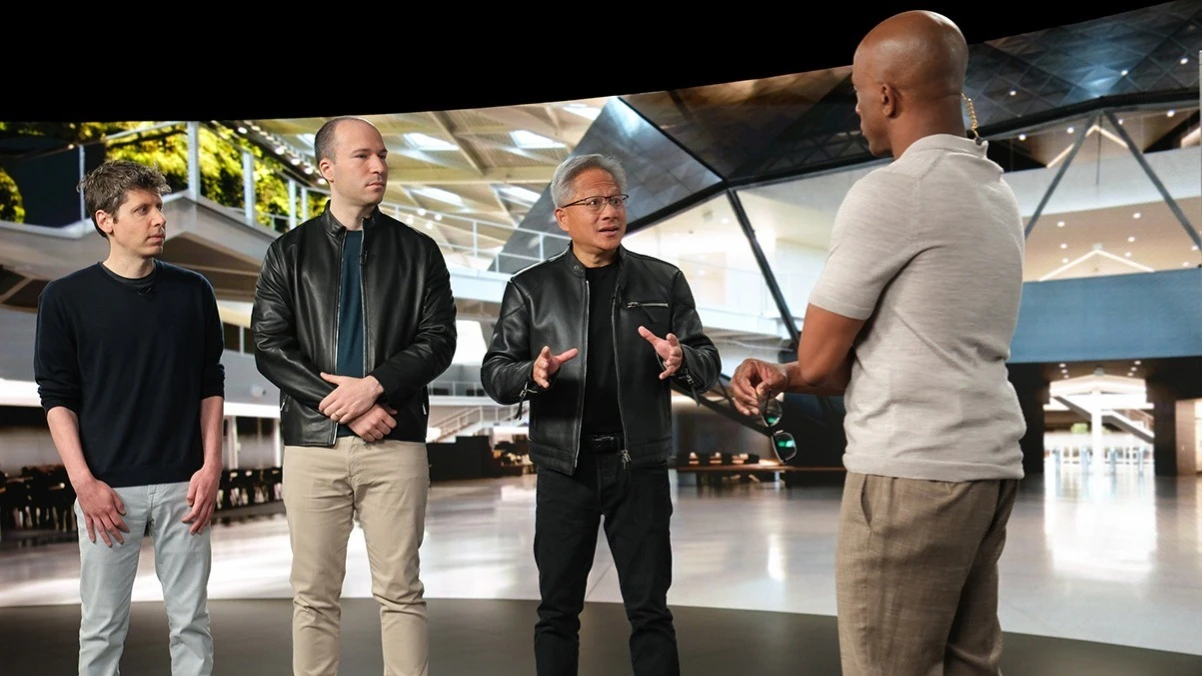"Investor of last resort": analysts saw bubble risks in Nvidia and OpenAI deal
The scale of Nvidia's new commitment could attract the attention of antitrust regulators

The $100 billion deal between Nvidia, the world market leader in AI processors, and ChatGPT developer OpenAI has Wall Street analysts worried. They saw in it signs of a possible bubble and a bad sign for Nvidia, as it will, in fact, allocate OpenAI money, which it will spend on the purchase of equipment from Nvidia itself. This reminded analysts of the practices of the dot-com bubble and also raised doubts about the deal's compliance with antitrust regulations.
Details
Investments of chipmaker Nvidia in OpenAI for up to $100 billion some investors took as a signal of a possible bubble in the market, writes CNBC. The company will allocate money to OpenAI, which intends to build data centers based on Nvidia chips.
Although the market initially took the deal as a sign of a continuing rally in artificial intelligence, which pushed the indices to new records, some of its participants now see it as a disturbing echo of past overheated cycles, the channel notes.
Shares of Nvidia in trading on September 23 fell in the moment almost 3.5% and ended trading in the minus by 2.8%, although a day earlier they soared by almost 4%. More and more investors began to think about the consequences of the deal, writes CNBC.
Why does it look like a bubble?
The collaboration actually falls under the definition of vendor financing - when Nvidia gives OpenAI money, and the latter spends it to buy chips from Nvidia itself, which investors should be concerned about, CNBC writes, citing interviewed analysts.
"OpenAI is now selling a stake to a vendor to secure its investment. In other words, Nvidia is buying a stake in its client to secure future revenue. You don't have to be skeptical of the prospects for AI technology in general to see this announcement as a troubling signal of how insular the entire field has become. If Nvidia has to provide capital that then turns into its own revenue in order to maintain growth, the entire ecosystem may not be viable," Bespoke Investment Group wrote in a note to clients, as quoted by CNBC.
In the late 1990s and early 2000s, the practice of vendor financing fueled and then collapsed the market bubble, the channel noted. Telecom equipment manufacturers like Lucent Technologies, in an attempt to keep sales growth in check, gave billions of dollars in loans to small operators like Winstar Communications so they could buy Lucent equipment, CNBC explained.
The scale of Nvidia's new commitment may also attract the attention of antitrust authorities, Reuters writes. The US Department of Justice and the Federal Trade Commission entered into an agreement back in mid-2024, opening the way for possible investigations into the role of Microsoft, OpenAI and Nvidia in the AI industry.
"This deal could change the economic incentives of Nvidia and OpenAI because it would effectively cement Nvidia's monopoly in chips with OpenAI's leadership in software. This could make scaling more difficult for Nvidia's competitors, such as AMD, and OpenAI's modeling rivals," said antitrust lawyer Andre Barlow of Doyle, Barlow & Mazard.
So far, however, the administration of President Donald Trump has taken a softer stance on competition than the previous government of Joe Biden, Reuters noted.
What are other analysts saying?
Analysts at Bernstein noted that the agreement is positive for Nvidia, but also expressed concerns that some of the company's investments may come back to it in the form of purchases of its chips, writes Reuters.
"On the one hand, it helps OpenAI realize its extremely ambitious plans for computing infrastructure and assures Nvidia that capacity will indeed be built. On the other, questions about 'closing the circle' have been raised before, and now they will get a new impetus," said Bernstein analyst Stacey Rasgon.
"While some still express concerns that a bubble may be forming around AI, Nvidia's investment shows that the need for AI infrastructure is real and continues to grow," said Carnegie Investment Counsel research director Greg Halter. He is quoted by Yahoo Finance.
"While the news is positive for OpenAI's ability to scale, we are concerned that Nvidia is effectively becoming an 'investor of last resort' by bailing out OpenAI due to excessive commitments," DA Davidson analyst Jim Luria wrote. OpenAI is making commitments that greatly exceed its capacity," he added.
This article was AI-translated and verified by a human editor
